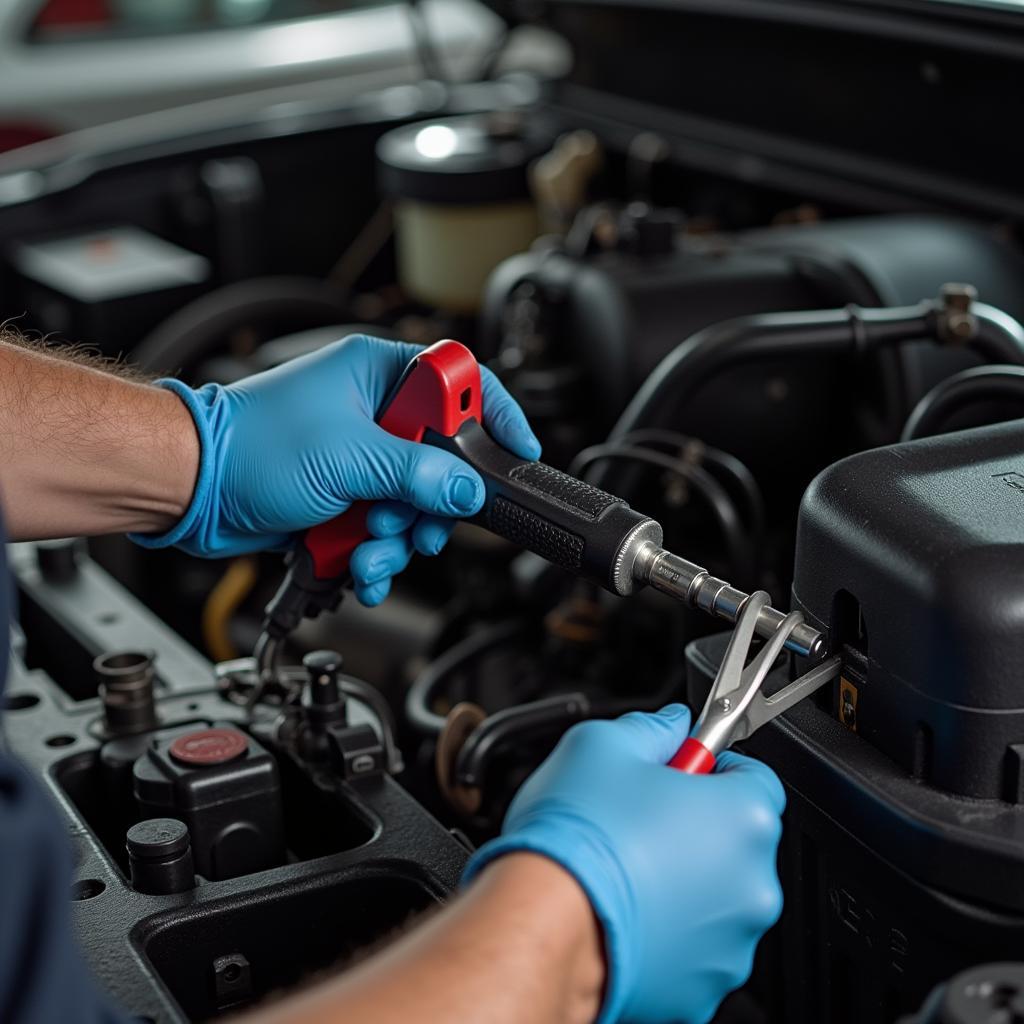How Often Is Car Service Due? A Comprehensive Guide
Knowing when your car needs a service can be confusing. Should you follow the mileage-based schedule in your owner’s manual or opt for a time-based approach? This comprehensive guide will answer the question “How Often Is Car Service Due” and provide you with all the information you need to keep your vehicle running smoothly.
Factors Determining Car Service Intervals
While your owner’s manual provides a general guideline, several factors can influence how often your car needs a service:
- Vehicle Age: Older cars might require more frequent servicing due to wear and tear on components.
- Driving Conditions: Frequent city driving, towing, or driving in extreme weather conditions can put additional stress on your vehicle, necessitating more frequent service visits.
- Driving Style: Aggressive acceleration and braking can impact brake pads, tires, and other components, leading to the need for earlier servicing.
- Vehicle Type: High-performance vehicles or those used for commercial purposes often require more frequent maintenance compared to standard passenger cars.
Understanding Your Car’s Service Schedule
Most car manufacturers recommend a service every 12,000 miles or 12 months, whichever comes first. However, this is a general guideline. Refer to your owner’s manual for specific recommendations for your car model.
There are typically two types of services:
- Interim Service: This usually occurs every 6,000 miles or 6 months and includes an oil change, oil filter replacement, and a basic inspection of essential components.
- Full Service: Performed annually or every 12,000 miles, a full service covers everything in an interim service plus a more comprehensive inspection of brakes, suspension, fluids, and other crucial systems.
Signs Your Car Needs a Service
Even if you haven’t reached the recommended mileage or time interval, certain warning signs indicate your car needs attention:
- Warning Lights: Pay attention to dashboard warning lights like the check engine light, oil pressure warning, or brake warning light.
- Unusual Noises: Squealing brakes, grinding gears, or knocking sounds from the engine could indicate a problem.
- Fluid Leaks: Check your garage floor for any signs of fluid leaks. Different colored fluids can indicate different issues.
- Performance Issues: Difficulty starting, rough idling, or reduced fuel efficiency can all be signs of underlying car problems.
The Benefits of Regular Car Servicing
Regular car servicing offers numerous benefits, including:
- Improved Safety: Identifying and addressing potential problems early can prevent breakdowns and accidents, keeping you and your passengers safer on the road.
- Extended Vehicle Lifespan: Regular maintenance keeps all components in good working order, prolonging the life of your vehicle.
- Enhanced Performance: A well-maintained car runs more efficiently, providing better fuel economy and overall performance.
- Higher Resale Value: A comprehensive service history can increase the resale value of your car, making it more attractive to potential buyers.
how often should my car get serviced
What Happens During a Car Service?
A standard car service typically involves the following:
- Oil and Filter Change: This is crucial for engine lubrication and performance.
- Fluid Top-ups: Brake fluid, coolant, power steering fluid, and washer fluid levels are checked and topped up as necessary.
- Brake Inspection: Brake pads, discs, and calipers are inspected for wear and tear.
- Tire Check: Tire pressure and tread depth are examined, and tires are rotated if necessary.
- Battery Test: The battery’s charge and overall health are assessed.
- Lights Check: Headlights, taillights, brake lights, and turn signals are checked for functionality.
- Visual Inspection: A mechanic visually inspects the engine bay, belts, hoses, and other components for signs of damage or wear.
Choosing the Right Car Service Provider
When selecting a car service provider, consider the following factors:
- Reputation: Choose a reputable mechanic or garage with positive customer reviews and a proven track record.
- Experience: Look for a provider with experience servicing your specific make and model of vehicle.
- Transparency: Ensure the provider offers clear pricing, detailed invoices, and explanations of any recommended repairs.
- Convenience: Consider factors like location, opening hours, and whether they offer pick-up and drop-off services.
does car insurance cover towing service
Conclusion
Knowing how often your car service is due is essential for maintaining your vehicle’s safety, performance, and longevity. While general guidelines exist, several factors influence the ideal service interval for your car. By understanding these factors, recognizing warning signs, and partnering with a trustworthy car service provider, you can keep your vehicle running smoothly for years to come. Don’t wait for a problem to arise — stay proactive with your car’s maintenance and enjoy a worry-free driving experience.

